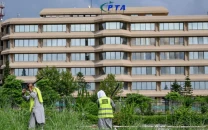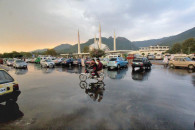Revisiting August 5, 2019
.

Six years after the revocation of article 370 of the Indian constitution on August 5, 2019 which had given special status to Jammu & Kashmir, it is time to analyse to what extent New Delhi managed to get support of local Kashmiris, and how after the Pahalgam terrorist attack and Operation Sindoor, the Modi regime failed to seek international backing on its flawed narrative about Pakistan's involvement in acts of terror in the occupied territory.
The recently concluded debate in the Indian parliament on Operation Sindoor featured opposition leader Rahul Gandhi lambasting Prime Minister Narendra Modi for lying over President Donald Trump's claim of brokering a ceasefire in the May 7-10 Indo-Pak war and India losing five war planes in the armed conflict. The Kashmir conflict which, according to the Modi regime, had lost its momentum and New Delhi had fully absorbed it in Indian union after August 5 is again a high-profile international issue.
How did India lose its perceived edge over its absorption of J&K on August 5, 2019? Why did the Modi regime fail to provide evidence of Pakistan's alleged involvement in the Pahalgam attack on April 22, 2025 in which 26 civilians were killed? How did the failure of Operation Sindoor reverse Modi's Kashmir policy, providing Pakistan a unique opportunity to forcefully raise the Kashmir issue at the international level?
Certainly, frustration and anger within the Modi regime over failing to take Operation Sindoor to its desired conclusion means that for the first time since August 5, 2019, New Delhi's confidence to firmly establish its control over occupied Kashmir has been dented. A major setback after the August 5, 2019 actions was caused when following the ceasefire between India and Pakistan, President Trump stated that he was ready to help resolve the Kashmir conflict in order to establish peace in South Asia.
Since signing the Shimla Pact with Pakistan in July 1972, India has maintained a consistent position that the Kashmir issue is a bilateral matter and can only be resolved through negotiations between Islamabad and Delhi. Trump's offer of mediation on Kashmir not only antagonised India but also challenged its position that Kashmir was no more an outstanding issue in the wake of its merger with India union. The Modi regime, however, miscalculated Operation Sindoor which proved counter-productive and brought the Kashmir dispute back in the limelight. The Indian Supreme Court had, in December 2023, dismissed petitions against the revocation of article 370 and legitimised the J&K merger with the Indian union, ordering that the statehood of the disputed territory be restored by September 24, 2024. Following the Supreme Court verdict, the election to the J&K Legislative Assembly, held in September-October 2024, saw the National Conference (NC) forming a coalition government along with Congress, and Omer Abdullah became the Chief Minister.
Even after the election in the occupied region, the real power rested with the Governor and New Delhi continued to undermine the authority of Chief Minister. In order to further legitimise its position on J&K after August 5, the Modi regime publicised the holding of tourism conference under G-20 in Srinagar in May 2023 and launched infrastructure road, dam and power projects. But all its efforts to strengthen its hold over J&K after August 5, 2019 suffered a setback when Operation Sindoor failed and Kashmir regained its status as a dispute between Pakistan and India.
Revisiting the August 5, 2019 actions, particularly the Jammu & Kashmir Reorganization Act passed by the Indian parliament and later upheld by the Supreme Court, needs to be analysed from three angles.
First is the debacle of Operation Sindoor which led to the questioning of the Indian position whereby after August 5, 2019, the target was to wrest Azad Kashmir and Gilgit-Baltistan from Pakistan. Indian Defense Minister Raj Nath Singh had been threatening Pakistan that after absorbing J&K, India's next target would be Azad Kashmir and Gilgit-Baltistan. However, after the May 7-10 Indo-Pak war, the Modi regime is pursuing a defensive position. The recent furor in the Indian parliament in which the Modi regime was blamed by Congress and other opposition parties for mismanaging the Pahalgam episode as well as Operation Sindoor means the very stance of New Delhi after August 5 is losing credibility. On July 30, Indian opposition parties in the parliament had to stage a walkout when Prime Minister Narendra Modi avoided speaking on the floor of the assembly to respond to the allegations about the shooting down of five Indian war planes by the Pakistan Air Force and failure to provide security to tourists who were killed by terrorists in Pahalgam.
Second, Pakistan lost a valuable opportunity to counter New Delhi's August 5 actions. As a result, not only India strengthened its position, particularly in the Valley, but also augmented its programme for settlement of Indian nationals. Indian authorities, following the model of the Israeli annexation of Palestinian lands in the occupied West Bank, launched the policy of grabbing Kashmiris' lands under the cover of security and development. By abrogating articles 370 and 35-A, India not only ended the so-called autonomous status of the occupied region, but also got a free hand to settle non-locals in the Muslim-majority state and allowing them to vote in elections. Even then, in the September-October 2024 elections in the disputed state, the BJP failed to get a majority. Pakistan should have exerted pressure on the Modi regime for merging J&K with India as union territories in sheer violation of UNSC resolutions.
Finally, Pakistan can still compel India to amend its policy on occupied Kashmir and resolve the conflict through negotiations if it is able to put its own house in order. Simply to argue that President Trump has offered to mediate is not enough. What is required of Pakistan is to better its economy, seek political stability, ensure good governance, guarantee rule of law, and eradicate extremism, corruption and nepotism.
Despite revoking article 370 and absorbing J&K, India lacks legitimacy to justify its hold over the occupied Muslim-majority state. A strong Pakistan can certainly gain support of international community for Kashmiris.












COMMENTS
Comments are moderated and generally will be posted if they are on-topic and not abusive.
For more information, please see our Comments FAQ